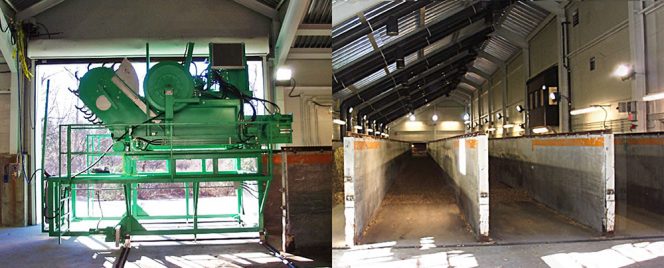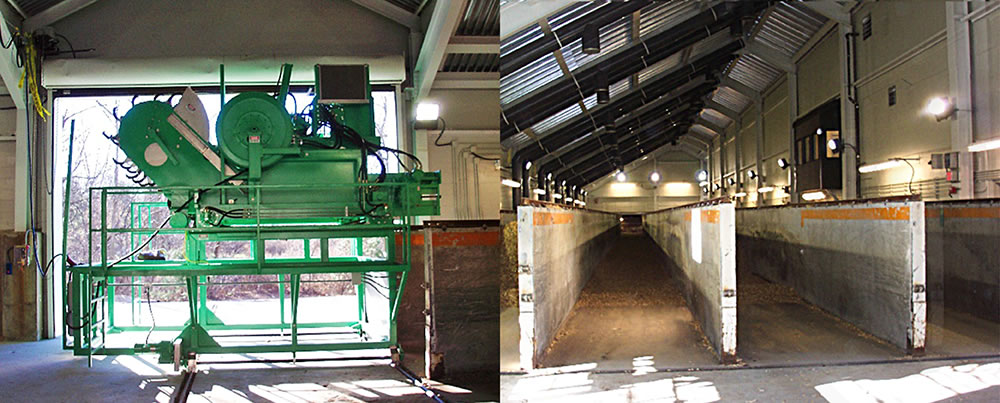Agitated Bay Biosolids Facility Back On Line

BDP agitator (left) installed at the Bennington WWTP, which turns material as it moves down the composting bays (right). Photos courtesy of BDP Industries
In 2018/2019, the Bennington WWTP underwent a major upgrade that changed the composition of the biosolids such that the operator of the alternate composting facility found it difficult to process. Other disposal options proved to be less cost-effective as well so in mid-August 2019, the City called BDP to request assistance to restart the facility within 2 weeks. “Bennington had been proficient with maintaining the facility and equipment during its dormant period,” explains Rich Nicoletti, BDP’s compost systems manager. “It was basically ready to restart with the exception of the biofilter and control system. The biofilter media needed to be replaced and the process control system required a major upgrade of components that no longer functioned.”
The City replaced the media with fresh wood chips and BDP assisted with developing an alternate operations method until the process control system could be properly upgraded. The Bennington Compost Facility officially went back into service at the end of August 2019, and has been generating a Class A compost that Bennington utilizes on its own projects, adds Nicoletti. It process about 30 cubic yards/day of blended feedstock (6 days/wk) — or 5 to 7 wet tons/day of biosolids depending on cake solids.










